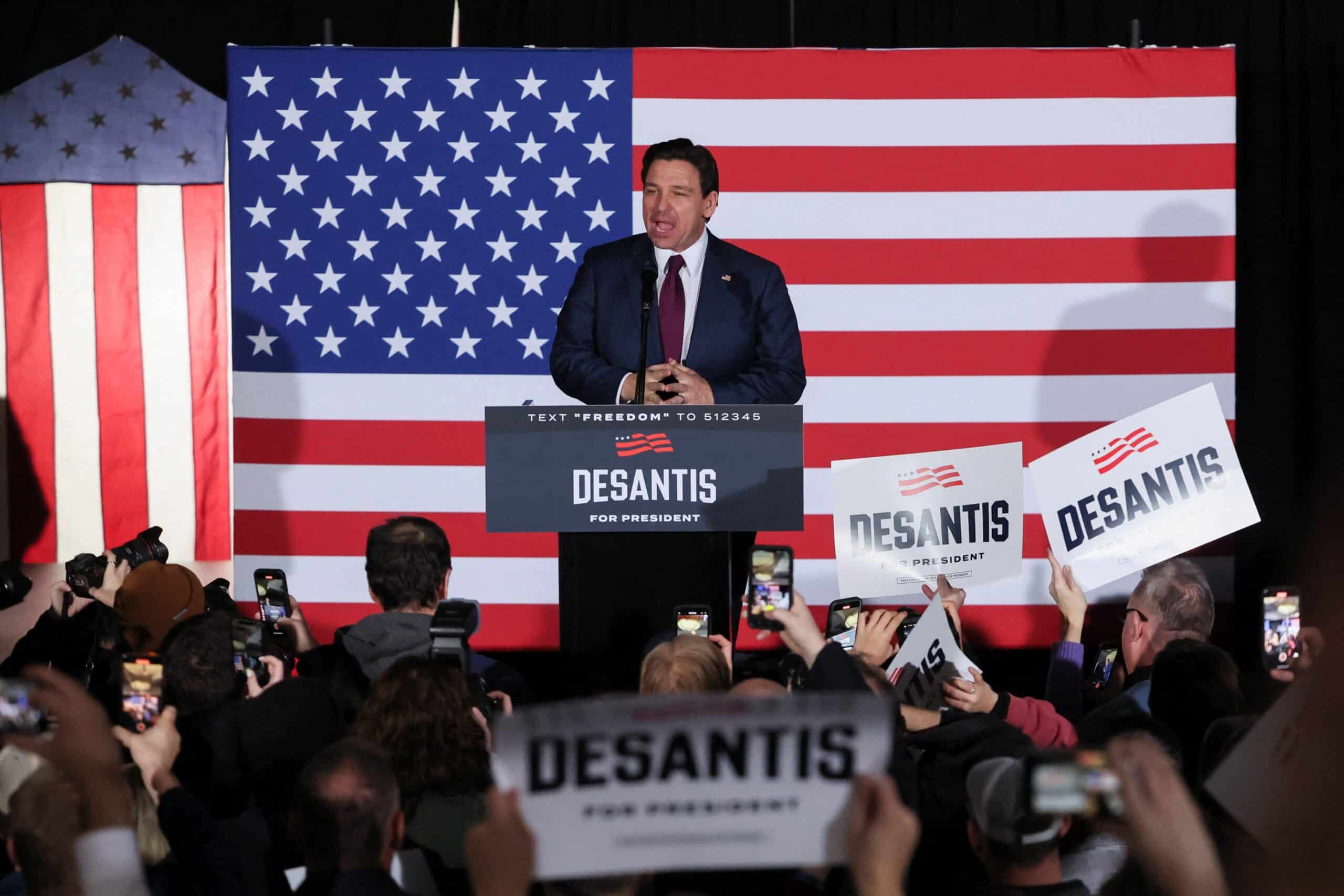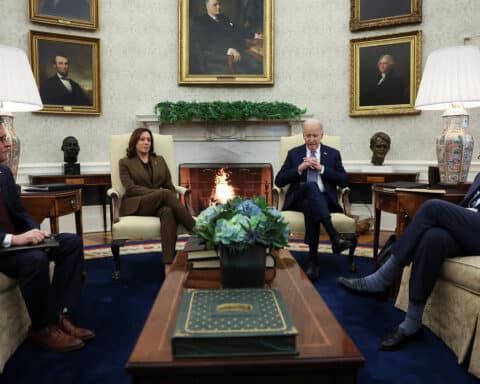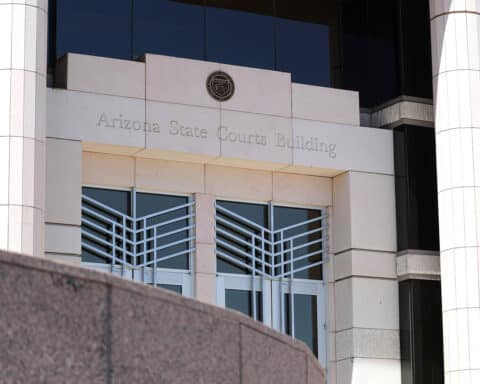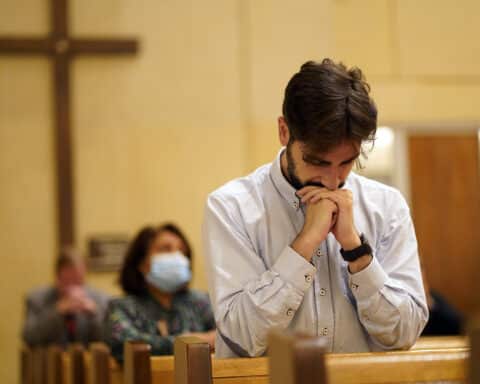(OSV News) — Gov. Ron DeSantis, R-Fla., ended his bid for president Jan. 21 and endorsed his rival, former President Donald Trump, just two days before New Hampshire’s first-in-the-nation primary.
DeSantis, a Catholic, who handily won his reelection as governor, was once seen as the most formidable candidate to challenge Trump for the party’s nomination. But his speculated momentum never came to fruition. The end of his campaign comes after a poor showing in the Iowa caucuses and follows canceled Sunday show interviews and campaign stops in the days before the key contest in New Hampshire.
In a video posted on social media, DeSantis said, “Following our second-place finish in Iowa, we’ve prayed and deliberated on the way forward.”
“If there was anything I could do to produce a favorable outcome, more campaign stops, more interviews, I would do it,” he said. “But I can’t ask our supporters to volunteer their time and donate their resources. We don’t have a clear path to victory. Accordingly, I am today suspending my campaign.”
DeSantis went on to endorse Trump in the video, arguing “it’s clear to me that a majority of Republican primary voters want to give Donald Trump another chance.” DeSantis said despite “disagreements” with Trump, he “is superior to the current incumbent Joe Biden.”
DeSantis’ departure from the race leaves former United Nations Ambassador and former South Carolina Gov. Nikki Haley as Trump’s last remaining Republican rival before the key primary contest in the Granite State. That state’s Union Leader newspaper endorsed Haley on Jan. 20.
DeSantis’ challenging bid for president
Robert Schmuhl, professor emeritus of American studies at the University of Notre Dame in South Bend, Indiana, who critically observes the modern American presidency, told OSV News that DeSantis “never fulfilled the expectations that many Republicans had for him.”
After DeSantis’ reelection in 2022, “it looked as though he would be the strongest challenger to Donald Trump,” Schmuhl said. “Trump immediately began to belittle and criticize him, which made people reconsider what they thought of him. Then his presidential campaign didn’t take off as effectively as it needed to, and he often seemed ill at ease in dealing with potential voters in Iowa and elsewhere. His decision comes as no surprise.”
Schmuhl said the Republican Party “has been transformed by former President Trump, and DeSantis is just another example of that reality.”
During his campaign, DeSantis tried to position himself as a candidate who would continue Trump’s policies without Trump’s baggage. A vocal critic of COVID-era restrictions and vaccines, DeSantis echoed some of Trump’s rhetoric about “elites” and the “administrative state” in Washington, arguing he would follow through where Trump had not. But DeSantis was hesitant to directly criticize his rival until the waning days of the race, with some analysts arguing he failed to draw a sufficient contrast for his candidacy.
DeSantis has moved to expand the use of the death penalty in Florida, a move criticized by that state’s Catholic bishops.





